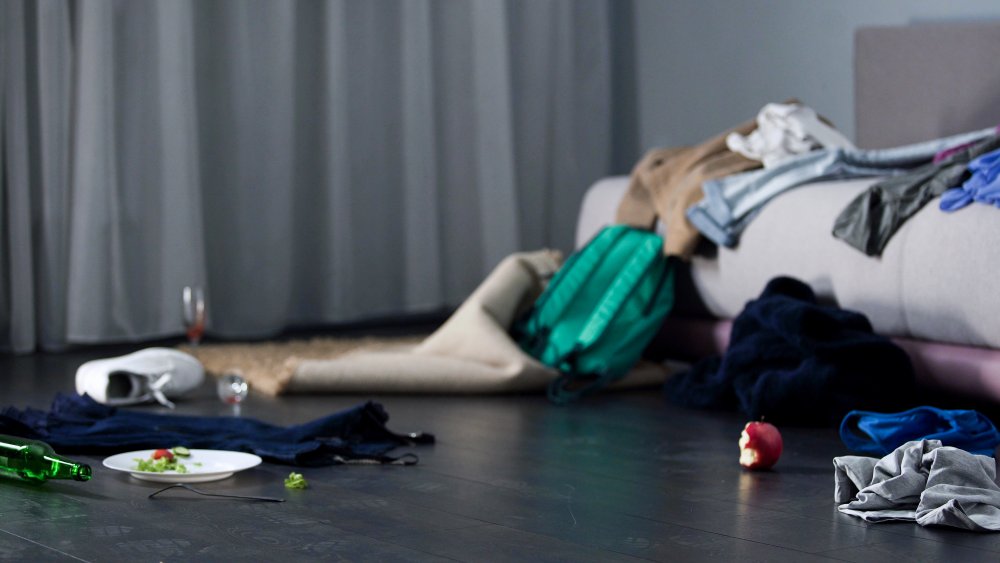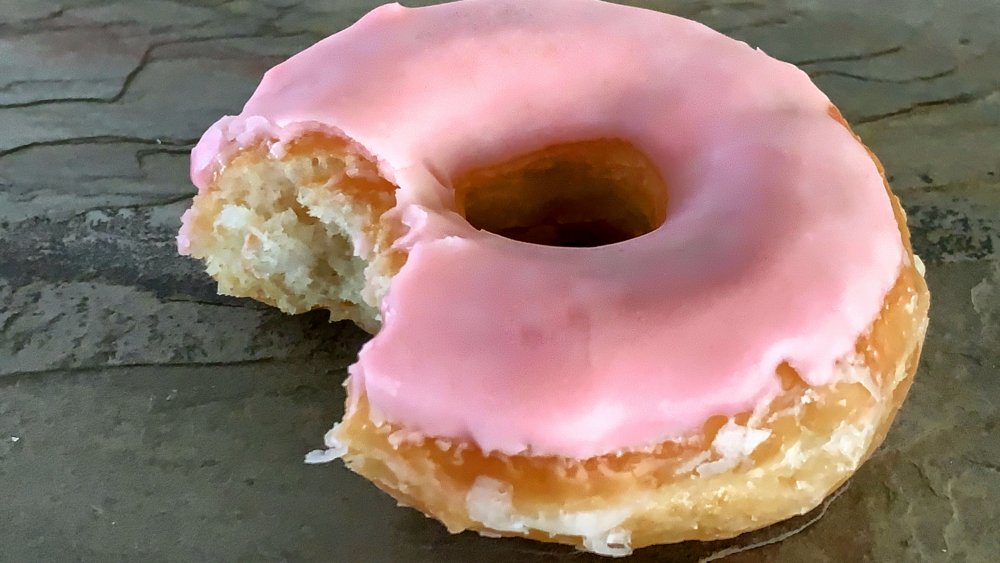The Dirty Truth About The 5-Second Rule
The next time you drop food on the floor, you might want to pick it up and throw it in the trash, no matter how good it tasted. Scientists say it's of no consequence how quickly you pick it up off the floor; germs will have already gotten on the food before you had a chance to decide whether to toss it, or eat it. After an exhaustive study, food microbiologist Donald Schaffner says he was able to prove when food falls to the floor, it will get infected immediately, and germs get a free pass to your insides as a result (via New York Times).
Schaffner and his team tested four surfaces: stainless steel, ceramic tile, wood, and carpet, and several types of food, from watermelon, to bread, to buttered bread, and a gummy candy. The surfaces were treated with a bacteria that is similar to Salmonella — which triggers symptoms from nausea to cramps, chills, and headaches (via Mayo Clinic). Not fun! The tests covered four different contact times (less than a second, 5 seconds, 30 seconds, and 300 seconds), with a total 128 combinations.
It seems like a lot to go through to disprove the 5-second rule, but Schaffner and his team managed to pull it off. What they found that was while various surfaces reacted differently — carpet had a low rate of bacterial transmission when compared with tile and stainless steel, bacteria can contaminate food instantly.
People follow the 5-second rule because they don't want to waste food
The Rutgers team wasn't the only group that disproved the 5-second rule. The old wives' tale was also dispelled by another food science team at Clemson University, whose researchers dropped slices of bologna and bread on a surface contaminated with Salmonella. When the food were dropped on wood, or tile, as much as 70 percent of bacteria made it onto the food. They also found that dropping food on carpet meant that only 1 percent of bacteria made its way onto the morsel (via Prevention).
Science aside, it may seem like common sense to assume food gets infected when it falls to the floor. But we seem to disregard this piece of knowledge because we're constantly being told not to waste food, and because people haven't connected eating food off the floor with getting sick. The thinking is, "I've done this all my life and never gotten sick; I did this a couple of days ago and nothing happened," former food safety professor Douglas Powell says.
Rutgers experimental psychologist William K. Hallman also says we don't think much of eating food which has fallen onto the floor because it's not seen as risky behavior. Germs are invisible, so we may not think there is any harm in picking up a piece of candy, blowing it off, or wiping it down, then eating it. But given how dirty and infected the floor or ground can be, this is a belief that we need to rethink.

